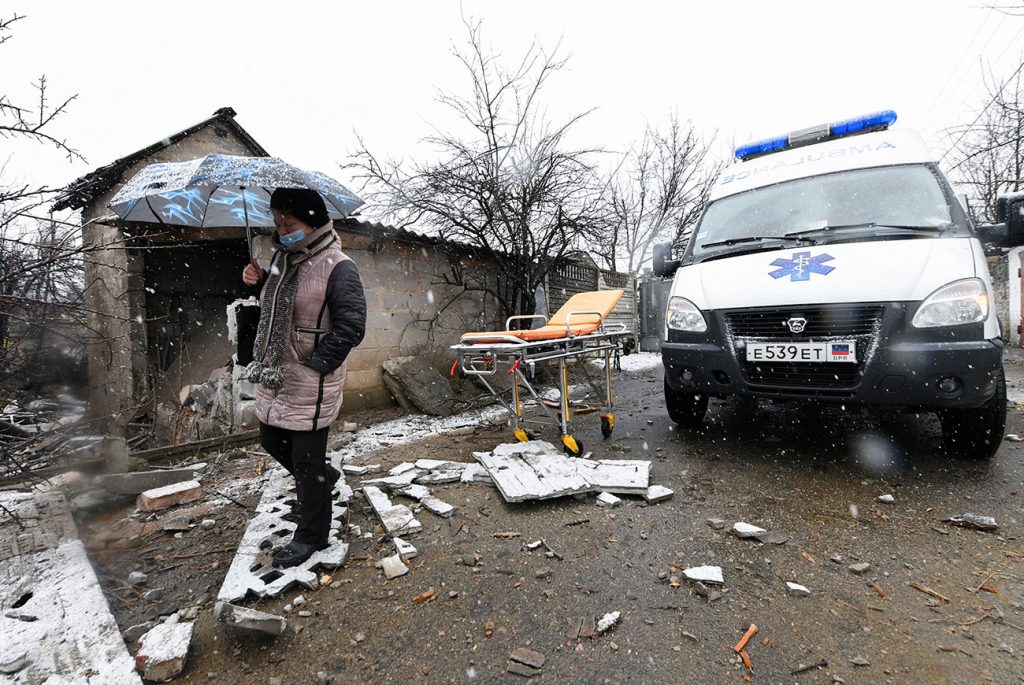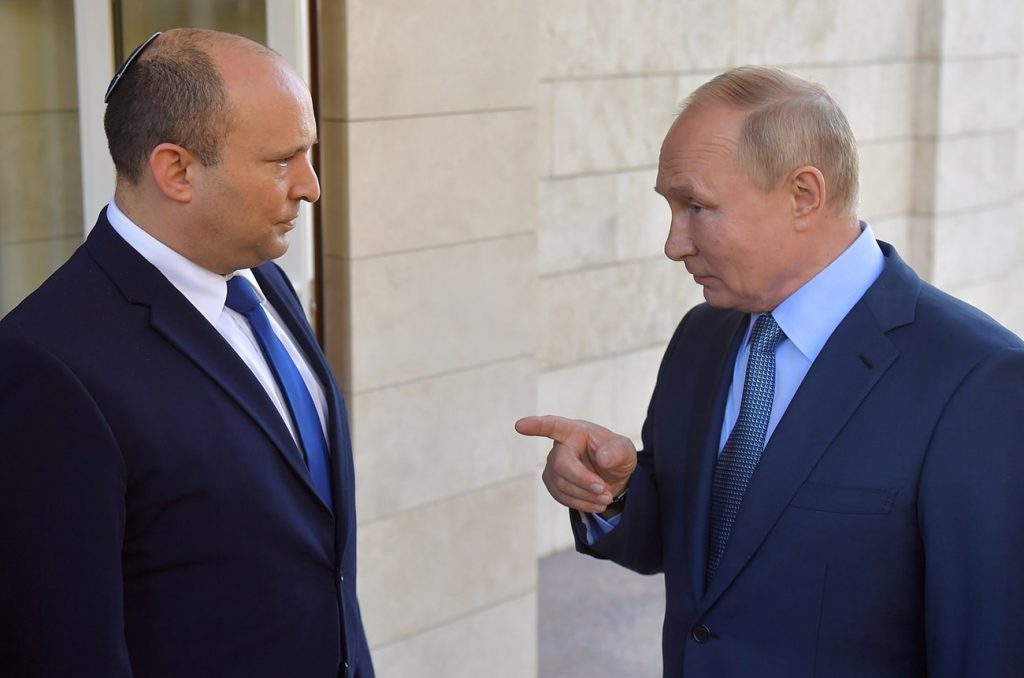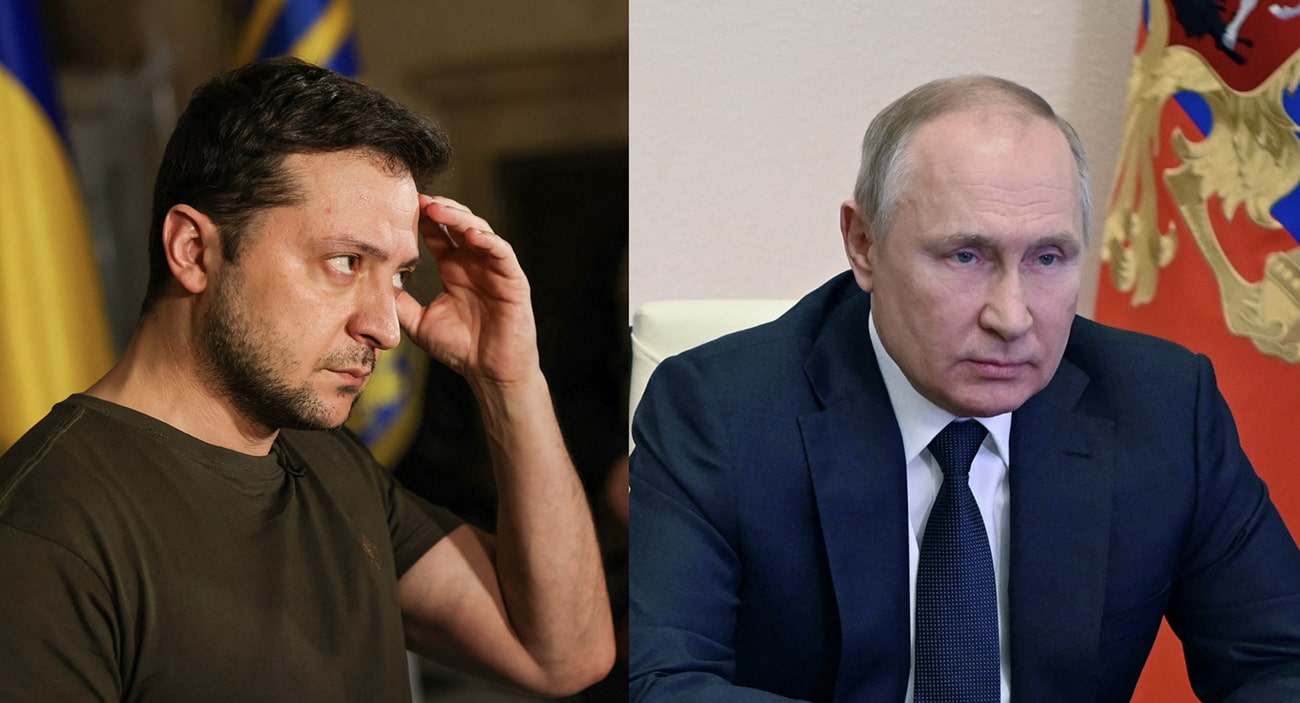The current conflict in Ukraine can be described as a hybrid proxy war between the ex-Soviet power, Russia, and the Western allied forces, which are led by the United States. It is being fought not only with tanks, artillery, and aircraft but also with special forces and foreign fighters, drones, cyber campaigns, and social media campaigns of disinformation and fake news that only create chaos and heated debates among people worldwide that do not always understand the reality of the situation. Many call this current conflict “Putin’s War.” The lopsided vote at the UN General Assembly indicates that this interpretation has become widespread. In order to understand the current situation, one must understand the underlying history of the Soviet—now Russian—conflict with the West. In this essay, I elaborate on aspects of the strategic logic behind the Russian attack—bearing in mind the humanitarian aspects of warfare, indeed, of any major war. I also address Israel’s position in the situation between a rock and a hard place.
The end of World War II is a good starting point for any attempt to understand the 2022 Russian–Ukrainian crisis. After the Allied forces won, the two major powers—the United States and the Soviet Union (with Britain fast in decline)—led in both strategy and ideology and laid the foundations of a new world order. The world shifted from being a multipolar system (prior to World War I) to a bipolar one. Even if one power was stronger than the other, both dictated the rules of the game in the global arena. In an attempt to prevent a situation in which one power would rise above the other, both powers began strengthening their ties with their allies. In April 1949 the North Atlantic Treaty Organization (NATO) was founded as a precautionary measure, responding to the consolidation of the Soviet Union’s control in Eastern Europe and the rise of communist power elsewhere. It also served to prevent further conflicts between European members, ultimately leading to the rise of the European Union (the European Coal and Steel Community, the kernel from which it grew, was established two years later, in 1951). From Moscow’s perspective, both the military alliance and the much more pacifistic EU came to be seen as directed against Russian interests. Following that strategic move, and after Western Germany joined NATO in May 1955, the Soviet Union, in its turn, established the Warsaw Treaty Organization (WTO), commonly known as the Warsaw Pact.
NATO brought together Western and Central European countries and, to the south, Turkey and Greece, as well as the US and Canada, while the Warsaw Pact consisted of the Soviet Union and the regions of Eastern European taken by the Red Army in the war, including Poland (relocated westwards) and East Germany. The logic behind these pacts was simple: collective security. That is, an attack on one ally would be considered an attack on all. When the Soviet Union dissolved in December 1991 due to various causes, including ideational and material reasons, Russia, however, remained a great power but in decline. The US and NATO understood the situation and—considering the initial rise of China a decade before—began to “enlarge” eastwards; Russia, however, only saw it as an attempt to speed up its own decline. Even after the dissolution of the Soviet Union, Russia still aspired to have significant global influence, particularly in Eastern and Central European countries and in the Middle East, an influence the West wanted to revoke. Again, as seen from Moscow, the Soviet Union and the Warsaw Pact lost, while NATO won and was no longer necessary, but why should NATO continue to exist, let alone expand, if not for some dark anti-Russian purpose?
Indeed, NATO did not fade away but actually grew stronger, a fact that signaled to other world powers that they needed to prepare themselves as well. In 1949, 12 states established NATO, including the US, the United Kingdom, and France. Turkey joined in 1952. [Western] Germany joined in 1955, Poland in 1999. In 2004 seven more countries joined NATO, many of whom were in the Soviet sphere of influence. North Macedonia joined in March 2020, making NATO a pact of 30 states. Thus, Russia gradually lost its influence over extensive parts of Europe and consequently, its influence over the world. In terms of the balance of power, and adhering to a realist approach, Moscow had no desire to stay behind the US and China. As a nuclear power and the world’s largest country, it began to push back against the expansion of Western influence eastward. It was also increasingly determined to prevent Western economic and military power from taking hold near its borders. This meant undermining NATO’s attempt to recruit Georgia on Russia’s South-Western border, deterring Finland and Sweden in the Baltic area, and, of course, Ukraine, which, together with Belarus, served as a buffer sharing a long common border with Poland, a NATO member. As seen from Moscow, extending NATO to the East would provide a ground on which the military alliance, in combination with the economic machinery of the EU, could move toward Russia as well as decrease Russia’s response time in case of a nuclear attack.

Ukraine became an independent country in August 1991 but remained within the Russian sphere of influence in its early years of independence. Both during the Orange Revolution (2004–2005) and during the Maidan Revolution (2013–2014), Ukrainian politics remained in the battleground as the West pushed for one candidate and Russia pushed for another. Ukrainian politics became the proxy upon which powers fought with each other. In 2008 NATO began officially discussing Ukraine’s membership but was pushed back by Russia. Ukraine also attempted to join the EU, as it has favored pro-Western candidates since 2014; Russia perceived this economic pact as no less dangerous for its global position than NATO itself. In an attempt to push back Western pressure and influence over Ukraine, Russia annexed the area of Crimea in early 2014. Additionally, the regions of Donetsk and Luhansk, referred to as the Donbass region, declared their separation from Ukraine as most of the population there was pro-Russian as Russia had promoted a pro-Russian administration in the region.
Given its self-perception as a powerful hegemon in a tri-polar global system (despite the pitiful size of its economy), Russia came to see itself as being under attack. Clearly, according to its own perceptions, it should not be considered the sole aggressor in this crisis. Russia’s attempt to create a European dependence on energy (i.e., Nord Stream) can be construed as a bid to extend Russian economic influence westward, but overall, Moscow was on the defensive. In the current Ukrainian matter, strategically speaking, Russia is not an agent but a reagent. From Moscow’s perspective, it seeks to preserve its influence and not gain more. One could also assume that if the West had not pushed or tempted Ukraine, by trying to recruit it to NATO or to the EU, Russia would not have invaded Ukraine in 2022 nor in 2014. Indeed, as liberalism and democracy are important concepts, Ukrainians’ voices must be heard, and their voices are composed of many—liberals, conservatives, nationalists, and in between. Yet, liberalism and democracy do not always align with strategic goals, especially not when one great power is struggling with another. Moreover, while Russia attempts to preserve or boost its global influence, the West is also attempting to preserve its leadership—while Putin or Xi may speak of global hegemony—at a time in which this claim for primacy is also being challenged by China.
This reading of the situation also entails an effort for conflict resolution. Russia must stop its intervention in Ukraine, and there is no doubt about that. In the current state of affairs, however, it will fall to the West to respond to Russia’s demand that Ukraine become a neutral buffer zone and not as bridgehead of hostile forces.
The current conflict in Ukraine is thus a gamble for both sides. On the Russian side, the decision to invade and attack Ukraine and Ukrainians is a dangerous one for Russia’s President Vladimir Putin. The conflict appears to have stirred significant criticism from the Russian public and even from Russian officials and businessmen. From within the Kremlin’s walls, upon hearing the aggressive personal denigrations, it is not difficult for Russia to assume that the Western pressure on Moscow is intended to overthrow Putin’s regime from within, similar to the way that the Soviet Union was pushed toward dissolution in 1991.
Moreover, both publics in Ukraine and Russia perceive themselves as brothers, or as nations with similar values at the very least. Moscow therefore risks that not only Russian citizens but also government officials, military commanders, and soldiers will refuse to fight in Ukraine as many Russians also have Ukrainian relatives. One can assume that the decision to deploy soldiers from the Chechen Republic to Ukraine was made to address this risk, as Russians, the majority of whom are Christian and ethnically Slav, will probably care less about the death toll of those it perceives as foreign fighters against whom Russia has fought on two occasions. Non-Russians and non-Slavs will also not care about fighting Slavs, a fact which will lower the probability of Chechen soldiers and commanders refusing to fight. Deploying Chechen solders also serves as an indicator of the loyalty of the Chechen Republic to Russia, as Russia also seeks to avoid future conflicts there.
On the Western side, the refusal to publicly deny Ukraine’s possible future membership in NATO or in the EU is perhaps understandable as a response to violence. But it is also a dangerous stance, as it could possibly lead to the perpetuation of conflict in Ukraine, and indirectly (or worse) to a clash between members of the EU and NATO with Russia. Active military involvement of NATO members in the conflict might invoke article five—that an attack on one ally is an attack on all. This situation could lead to the largest military conflict since World War II and even to nuclear warfare. Thus, one must hope that both sides will halt their vigorous intervention in Ukraine. The West must let local politics follow culture and democratic enlightenment, not the other way around. One must also hope that should the conflict escalate, both side will step away from the brink.
What would be the next possible strategic step for Russia after the Ukrainian situation hopefully de-escalates? A probable outcome, which may ultimately pose greater threats to the West, is that Russia might decide to create a “grand alliance” with China while it temporarily halts actions in Ukraine to de-escalate the situation. Strategically, Russia has already signaled to countries which have considered joining NATO in the past, like Finland and Sweden, that they should think twice. As with the dissolution of the Soviet Union, ideational and material aspects must change with time and with generations both in Russia and Ukraine, to ensure a peaceful transformation from Soviet times. Furthermore, considering the current fragile situation of the EU, one must also wonder why Ukraine seeks to join an alliance which is no longer in its prime. This question, however, is outside the scope of this essay.

Lastly, where does Israel stand in this situation? As a country which, alongside its neighbors, has de facto been used as a fighting ground between global powers, Israel is placed in a problematic situation. The reasons for this are threefold. First, Israel is one of the most significant allies of the US in the Middle East and cannot renounce its loyalty, nor can it renounce its association with NATO, given the Iranian nuclear threat. Second, Israel cannot renounce its relationship with Russia, nor can it comprehensively criticize Russian actions as Russia is a key influencer in the Middle East and on Syria and Iran. Israel’s obligation to undermine the Iranian nuclear program and thus secure itself must come prior to Israel’s desire to criticize other countries or intervene in foreign conflicts. Third, a significant amount of Israel’s ex-Soviet population, of which I am also a member, is critical of Russia and protests in favor of Ukraine. This fact might color the political landscape and undermine the logic of strategic decisions in case Israeli politicians are tempted to win another electoral slice for future elections.
On February 25, 2022, Ukraine’s President Volodymyr Zelenskyy requested Israel to mediate with Russia. This might be an effective move considering the fact that both NATO and Kyiv are aware that Moscow has significant leverage on Jerusalem, making the mediation more reasonable for both sides. If this would halt the invasion and bloodshed and bring Israel closer to Russia while making it more credible in American eyes, Israel should indeed take the role of the mediator. Moreover, Israel, as a sovereign nation with many security problems, must avoid being dragged into the conflict—beyond the UN vote, in which it sided with the West. Moral stands may win politicians some votes, but the country might lose significant strategic benefits. In this regard, the now deleted call of the Ukrainian embassy in Israel to recruit Israeli citizens to fight against Russia should be considered as a diplomatic provocation as it runs against local laws, local loyalties, and the need to sustain a working relationships with Russia. I am not sure that this is a good idea for Israeli and Jewish citizens, considering the neo-Nazi recruitment to the Ukrainian Azov Battalion. Although many in Israel take pride in the fact that Volodymyr Zelenskyy is Jewish, the best use of this angle of the situation, as he himself seemed to acknowledge, is to translate it—alongside the relationship with Putin—into an ongoing mediation effort.



